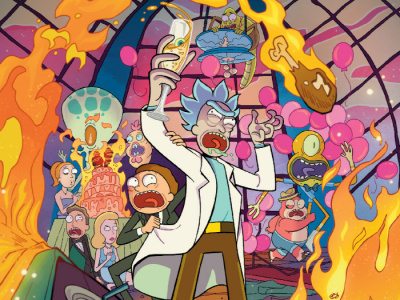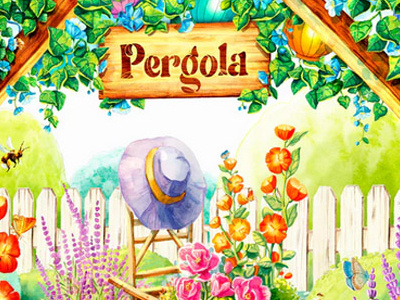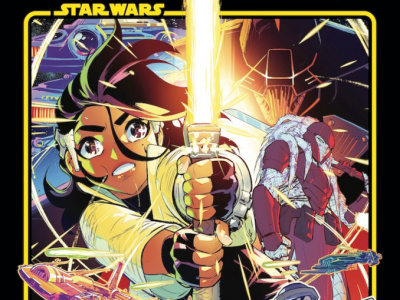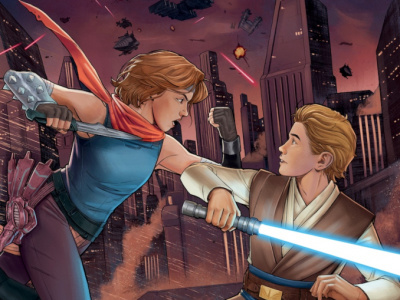We interviewed Marvel President of Publishing Gui Karyo on Marvel's use of variant covers, why they're used, and his response to concerns about their use. He defended marketing based on collectability, but doesn't feel it contributes to long-term growth.
This interview is one of four interviews with executives from the top comic companies in which we explore the questions around the recent use of variant covers as a marketing technique. We lay out the landscape in 'Variant Covers--Are They Back?' The other three interviews are: 'Variant Covers -- DC's Bob Wayne,' 'Variant Covers -- Image's Erik Larsen,' and 'Variant Cover -- Dark Horse's Jeff Macey.'
There are a couple of examples over the last year when Marvel used variant covers for its (infrequent) second printings. Does Marvel plan to continue to use variant covers for that purpose?
Yes, we have been very pleased with retailer and consumer reaction to these products, and we will most likely continue this policy where appropriate.
Do you plan to let retailers order as needed, or use the variant cover editions as incentives for orders on other products?
We discuss this almost every time that we consider a reprint. With Secret War #1, for example, we initially thought to limit the copies one could order, but ultimately let it be ordered openly. I think this will most likely be the prevailing policy for the foreseeable future.
As I understand it, you're using two variant covers on the first printings of Astonishing X-Men #1 as incentives for orders on other books. Is this a one-time thing, or a technique that Marvel is going to incorporate into its marketing mix?
We're honestly not sure at this point. We believe strongly in experimentation. We are still evaluating both of the variant cover strategies we are employing with Astonishing X-Men #1. Check in again in a few months.
Has Marvel used variant covers as incentives in other ways in recent years?
Not consistently. I think Bill Jemas did something with Marville, but this has been a sporadic and experimental field for us.
Some argue that tying incentive books (i.e., variant cover editions) to the sales of unrelated titles just forces inventory into the retail tier that doesn't sell through to consumers. How does Marvel respond to this concern?
I think there is a valid argument to be made here by retailers. The counterpoint is that publishers are always trying to create incentives to push products that it feels have value and will sell even if retailers have doubts. Our goal, and the goal of the retailers are the same -- to sell comics to consumers. In our individual ways, we both explore methods to do this more effectively for each product we develop.
Joe Quesada has said that DC's variant covers are a factor in Marvel doing more of them. Why does Marvel care whether DC does variant covers or not?
Well, let me clarify this - Dan, Joe and I are all constantly watching the market place - and in particular, we have been watching the variant cover effect since Dreamwave's Transformers covers. It is not that we watch or react to DC specifically, but it is foolish not to watch the market. What influences us is that there is apparently a large demand for these covers from our customers.
Are there factors other than competition that are leading Marvel to use more variant covers?
That is funny, you know, I never even thought about this in the sense of a competition, but I see what you mean. Your question should be whether or not competition is a factor in the use of more variant covers.
The answer is no. Economics is the main deciding factor in our decisions, tempered primarily by creative inspiration. I always think of it in terms of giving our retailers and our consumers desirable products.
How do you respond to the argument that variant covers encourage speculation and emphasis on the aftermarket value of a comic rather than on the entertainment value?
I would agree. This is exactly the purpose of variant covers. No one buys two copies of a comic to read, they buy at least one just to own it, nor do you double your readers by giving them a choice of which cover they like better. If I were a collector, I might argue that a legitimate part of the entertainment is collecting.
By the way, not all variant covers are in limited enough distribution to encourage a higher aftermarket value nor are all comics that have a higher market value the result of speculation. There is actually a legitimate collectors market, which while fraught with risk does function to give retailers a healthy secondary income stream.
I'm not, in case you are interested, a collector; I'm a reader and if you saw my cube you would know right away.
This seems like a return to the marketing techniques that helped lead to the collapse of comic sales in the mid-90s. Are you concerned about that happening again?
I think it is a little early to start forecasting both the ballooning and collapse of a market that is still showing signs of fighting tooth and nail for growth.
I would say, though, that one of my chief concerns on a daily basis is the health and well being of the comic market, and I honestly believe that variant covers, while an interesting to experiment with from time to time, are not going to contribute to the growth of this business.
I think of it like an all sugar diet, variant covers will give you a boost, but will fail you in the long haul.







